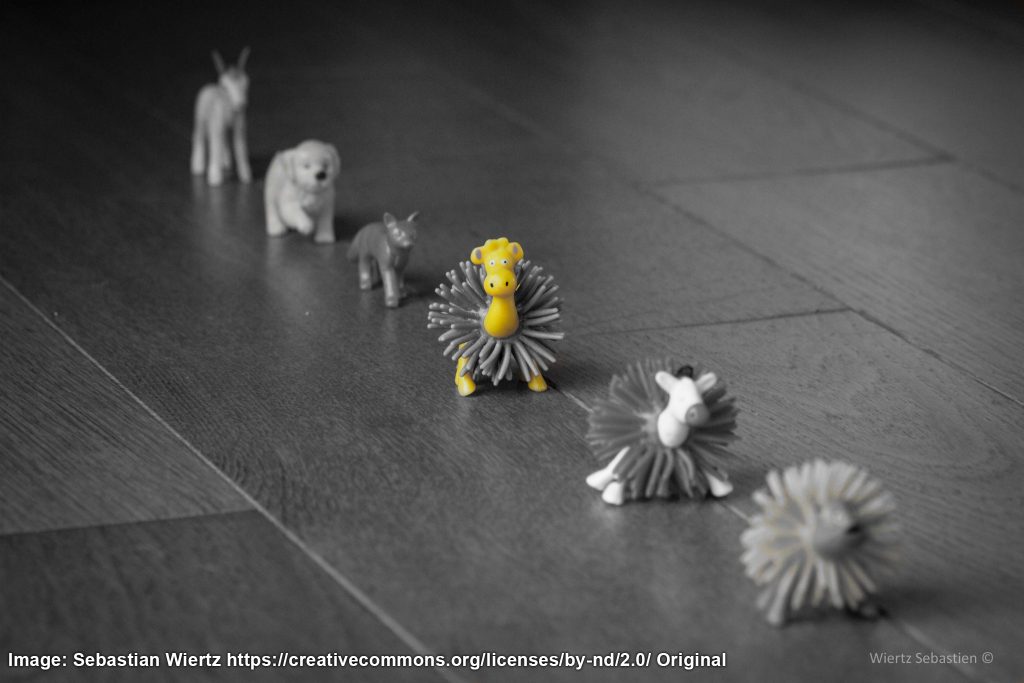The “It” Factor… Or The “Uck” Factor?
What does talent look like? Can we recognize talent or just standouts?
Before American Idol, Pop Star, or America’s/Britain’s/Australia’s Got Talent, there was (at least in the States) The Gong Show. Started in the seventies, and lasting until almost 1990, I was very young and hooked at first sight.
The Gong Show was a talent competition on NBC, with three judges scoring up to 10 points each, or striking a gong to halt the performance, taking that contestant out of the running for first prize.
What was the first prize, you ask? $1,000, $25,000? Try anything ranging from $516.32 to $996.83, depending on the episode. Oh, and the winner walked away with a trophy, too. The biggest prize, of course, was the exposure.
When I came home from school for lunch (yes, that actually was an option), I would watch The Gong Show while I ate, and my mother was kind enough to let me.
I marveled at the talent being discovered before my eyes each episode. Yes, there were some duds (probably planned for “entertainment value” ironically), but people like 12-year-old Andrea McArdle sang everyone’s socks off and ended up on Broadway as “Annie” a short time later. Even renowned television and film composer Danny Elfman appeared on The Gong Show in the early days of his music career.
The Gong Show was going to be my big break…when I got a little older. At least, that’s what I thought as I watched host Chuck Barris introduce each hopeful to the week’s celebrity judges and the vast, American viewing public. “One day,” I thought, “I’ll win The Gong Show and it will catapult my career.”
And then something happened.
As I waited to get older, The Gong Show transformed. I saw less and less talent and more and more gong-worthy contestants. These people seemed like they were intentionally being awful—or shall I say provocative. Instead of standing out because of their obvious talent, they stood out because they lacked it. Or worse, because the sole purpose of their act was to shock the audience.
The turning point for me was one day when I watched a group of four guys stand in a line with a table in front of them. The first three men from left to right had a toothbrush and toothpaste. The first man on the left, who had a glass of water, brushed his teeth, rinsed mouth with a glass of water, which he spit back into the glass and pass it to the guy on his left. The second guy repeated this, using the water the first guy had spit into the glass.
The TV audience gasped and groaned.
The second guy passed the glass to the third guy, who did the same. Disgusted noises emerged from the audience again. Personally, I stopped eating, horrified at what I was watching.
After the third person spit into the same glass, it was passed to the fourth and final guy who--you guessed it--drank the whole thing down. My partially-eaten lunch nearly came up.
The gong was beat repeatedly, the audience was up in arms and I was done eating for the day.
That act was a defining moment for me and my beloved Gong Show. It seemed the show’s golden days were over, and I realized there was no longer a place for me on that stage. After all, I wasn’t looking to disgust anyone: I was looking to dance.
With the advent of Reality TV personalities and seemingly equal numbers of the famous and infamous in virtually all walks of life, I have to wonder if we recognize talent as clearly as before the world stage got so crowded.

